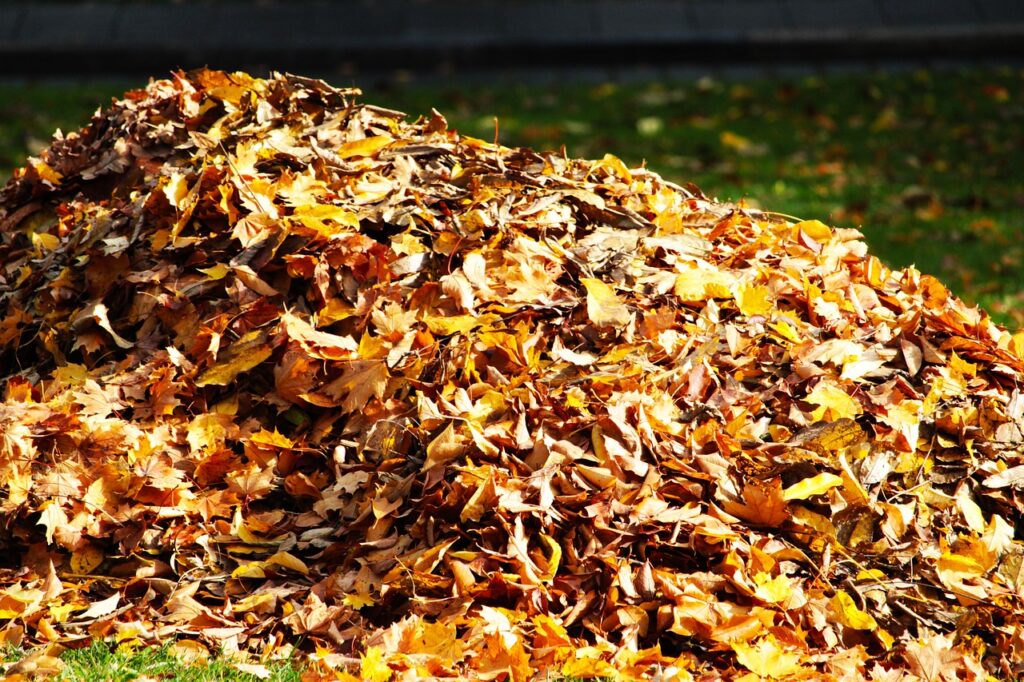Why Experts Are Warning You Not To Rake Your Leaves This Year
Experts are warning against raking up your leaves this year due to the negative impacts that doing so has on the environment including disrupting delicate insect and bird ecosystems as well as contributing to the amount of methane gas that is secreted into the air.
Raking leaves from the lawn into neat little piles and then bagging them up is an annual fall chore (or activity depending on how you look at it) for many in the United States. The autumnal foliage shedding is as inevitable as the rebirth of luscious green flora in the spring. And, so too is the raking of leaves to free our yards from plant decay, but this year environmental experts are releasing you from that obligation and warning individuals not to rake the leaves from their lawns at all.
Why the sudden departure from this age-old fall duty? The overarching reason is that there are numerous environmental benefits both small and large in scale. These benefits include the fallen leaves acting as a natural fertilizer, a means of shelter for small animals, and the propensity to reduce landfill-generated emissions in the air.
David Mizejewski, who works as a naturalist at the National Wildlife Federation, explained to USA Today that forgoing the act of raking leaves and opting to leave at least some on the ground instead can serve as a natural fertilizer by reintroducing nutrients into the soil as they break down and decompose back into the earth. Mizejewski also highlighted that leaves can prevent weeds from cropping up, as well as safeguard existing shrubs and plants from being overtaken by unwanted growth.
Additionally, Mizejewski pointed out that fallen leaves are actually integral to supporting numerous wildlife ecosystems. Many insects live on the leaves themselves, amongst these are caterpillars. Birds ingest caterpillars and then use them to feed their young. By raking leaves up and throwing them away, you not only destroy those delicate habitats and disrupt a naturally occurring balance but also potentially take away the food that bird species rely on to feed their babies.
Lastly, choosing to forgo raking your leaves this fall also has the potential to reduce the number of greenhouse gasses being generated at landfills. This is because when you rake leaves and then bag them, those bags are taken to the landfill to be broken down. The problem is, is that when organic matter is broken down in mass quantities it secretes methane gas into the air at unnatural levels, contributing to making the already precarious state of the environment even more so.

Given that the Environmental Protection Agency estimates that landfills receive about 10.5 million tons of leaves and other yard materials every fall, “The more we can keep that organic material out of the landfill, the better,” said Mizejewski.
So does this mean that you should give up raking leaves altogether and just let them pile up on your lawn in dense layers? Not quite. Maxim Schlossberg, who works as a professor of turfgrass nutrition and soil fertility at Penn State University, recommends mowing them down as a happy medium.
Mowing them down instead of raking leaves up shreds them into smaller pieces which means that organisms can break them down faster. It also doesn’t completely eliminate the habitat and resources that so my creatures rely on.
Additionally, as winter approaches it’s more likely that the fallen leaves will have served their natural purpose and it becomes safer to rake them up into piles or leave them in a garden area to compost naturally. “Once there’s snow, you’re not going to mow, and that snow is really going to facilitate that matting, and that coverage is going to prevent the leaves from being displaced by winds. That’s the situation you really want to avoid,” said Schlossberg.
Ultimately, the takeaway here is to be cognizant of the purpose of fallen leaves and the effects that raking them up could have on the natural world around you.











